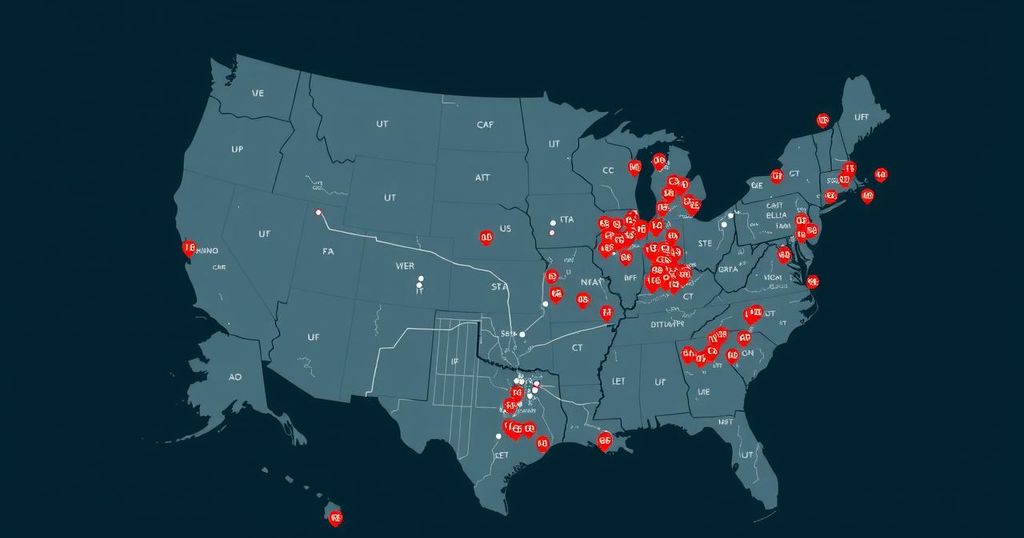Mapping Extreme Weather Impact on Elections: A Global Perspective
The 2024 Election Supercycle year highlighted the influence of extreme weather on elections in 14 countries, with disruptions caused by climate change impacting voter registration, campaigning, and voting operations. Key incidents included storm-related delays in Tuvalu, severe heat affecting India’s elections, and flooding in Senegal, underscoring the need for robust election preparedness against climate-induced disasters. The International IDEA’s EECM provides valuable insights and resources to enhance understanding of these challenges.
The 2024 Election Supercycle year witnessed significant disruptions caused by extreme weather events in 14 countries across various continents, including Bosnia & Herzegovina, India, Mexico, and the United States. Climate change further complicated these disruptions, impacting crucial phases of the electoral process such as voter registration, campaigning, and the actual voting process. Notable incidents included delays in Tuvalu’s prime ministerial elections due to storms, heat-related casualties in India’s vast electoral engagements, and severe flooding during the Senegal parliamentary elections, demonstrating the direct correlation between climate crises and electoral integrity.
The International IDEA’s Election Emergency and Crisis Monitor (EECM) serves as a comprehensive tool reflecting how climatic disasters influence electoral processes. The dashboard encompasses 65 country briefs spanning from 2001 to 2024, providing insights into various hazards such as floods, hurricanes, and earthquakes that have affected elections worldwide. Each country brief combines disaster impact assessments with an analysis of how jurisdictions adapt to maintain electoral integrity amidst crises, underscoring the pressing need for preparedness in election planning.
Furthermore, the dashboard facilitates a deeper understanding through detailed bibliographies, offering essential referenced literature on each electoral disruption. This resource is vital not only for scholars and policymakers but also for election stakeholders seeking to enhance disaster resilience within the framework of democratic practices during elections.
In recent years, the intersection of climate change and political processes has become increasingly pronounced, as evidenced by the challenges faced during elections. Extreme weather events, exacerbated by global climate shifts, have disrupted electoral cycles in numerous nations, necessitating a responsive and adaptive approach in electoral management. Organizations such as the International IDEA have recognized the implications of such threats and have developed resources aimed at monitoring and analyzing these challenges to support the integrity of global electoral processes.
In conclusion, the implications of climate change on electoral processes are profoundly impactful, as seen during the 2024 Election Supercycle. Multiple countries experienced significant disruptions rooted in severe weather conditions, from local elections in Bosnia & Herzegovina to national elections in the United States and India. Tools like the EECM are essential to enhancing understanding and preparedness, ultimately safeguarding elections in an era marked by increasing climatic volatility.
Original Source: www.idea.int




Post Comment